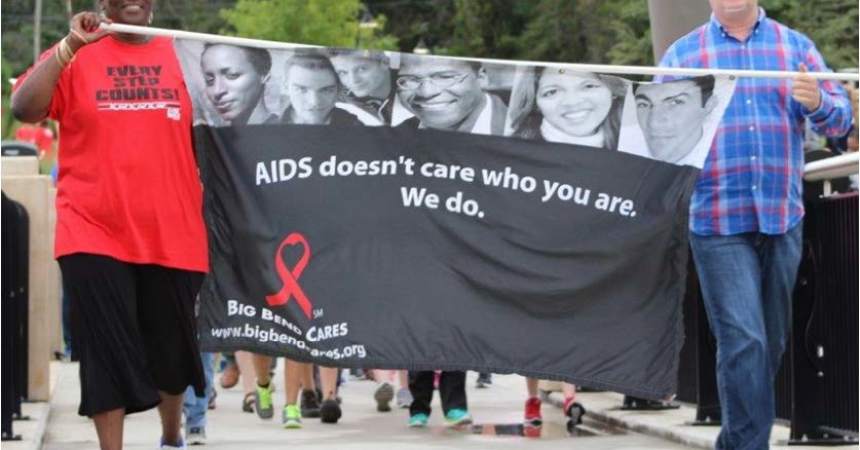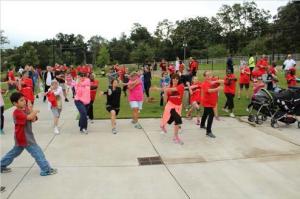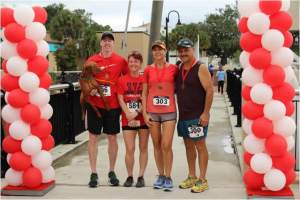
Big Bend Cares Celebrated 25th Annual AIDS Walk and 5K Run
By Bre-Shara McCall
Outlook Writer
On Oct. 3, Big Bend Cares hosted its 25th annual AIDS Walk and 5K Run at Cascades Park in Downtown Tallahassee.
The event featured live music, HIV testing, food truck vendors, information tables from local healthcare providers and testimonials.
“The AIDS Walk and Run is an opportunity to raise awareness, celebrate the people who have passed, honor those who are continuing to fight and have dedicated their lives to finding a cure for HIV/AIDS,” said Charlie Adams, deputy director of Big Bend Cares.
Big Bend Cares is an agency that provides education and comprehensive support to people infected and affected with HIV/AIDS in Leon, Jefferson, Gadsden, Liberty, Madison, Franklin, Taylor and Wakulla Counties, commonly referred to as the “Big Bend” area.
The Florida Department of Health has recorded HIV cases in the following Big Bend counties, based on a 3-year rolling rate from 2012-2014: Leon, 276 cases; Gadsden, 45 cases; Wakulla, 4 cases; Liberty, 3 cases; Madison, 8 cases; Taylor, 5 cases; Jefferson, 6 cases and Franklin, 5 cases.
According to the Center for Disease Control (CDC), about 500,000 people get infected with HIV each year. At the end of 2012, about 1.2 million people in the United States were living with HIV and about 13,712 people diagnosed with AIDS resulted in death.
HIV stands for human immunodeficiency virus, which specifically affects the CD4 or T4 cells in the immune system. When the body destroys so many of these particular cells that it can’t fight off infections and diseases, acquired immunodeficiency syndrome, or AIDS develops.
After checking-in, hundreds of participants crowded near the amphitheater to stretch before taking their positions at the starting line.
“I’m here in honor of my mother, who passed away from HIV shortly after giving birth to me in 1993,” said Fritz Fevry, a junior from Miami, Fla. “I do not have much memory of her but it does not mean I love her any less. This is one of the ways I keep her spirit alive.”
Volunteers cheered and directed participants by holding signs with arrows as they passed by along the route.
Randall Williams, AIDS Walk participant, said he learned something new about HIV/AIDS testing. “I didn’t know the different testing methods, the results they produce and how easy it is to get tested. I think more people should take that first step and educate themselves.”
HIV has three stages, in which it can be transmitted from one person to another at any time. HIV is not curable; however, it can be slowed down to prevent progression, the lives of those infected can be prolonged and chances of infecting others can be lowered with antiretroviral therapy (ART).
All proceeds go directly to the Big Bend Cares Client Services Department, which caters to assisting families affected by HIV/AIDS.
For more information, statistics, prevention, volunteering opportunities and other resources, visit the Big Bend Cares website at www.bigbendcares.org
Information used in this article was provided by the Center of Disease Control, Florida Department of Health (Division of Public Health Statistics & Performance Management) and Big Bend Cares.










